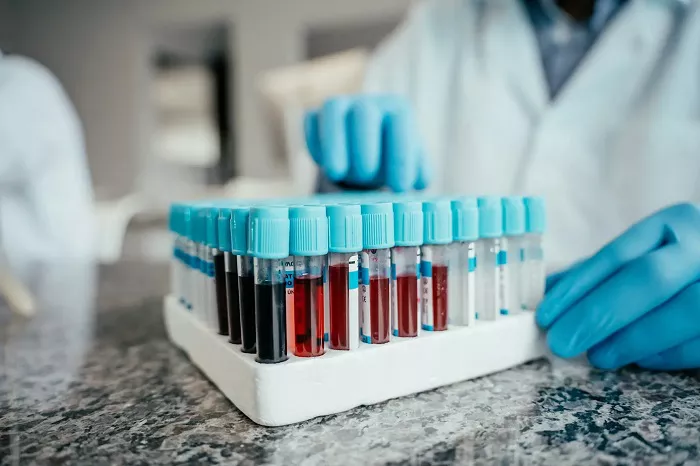Crohn’s disease, a chronic and often debilitating inflammatory bowel disorder, has long been a challenge for patients and doctors alike. Characterized by severe abdominal pain, persistent diarrhea, weight loss, and fatigue, the condition can significantly diminish quality of life. While treatments exist to manage symptoms, there has never been a way to predict who will develop Crohn’s—let alone stop it before it starts. Now, a groundbreaking international research initiative is working to change that.
The INTERCEPT study, a five-year, $40 million project involving leading medical institutions and pharmaceutical companies, is pioneering two revolutionary approaches: a predictive blood test that could identify at-risk individuals up to a year before symptoms appear, and a preventive drug trial that might halt the disease in its tracks.
A Blood Test to Predict Crohn’s Before Symptoms Strike
One of the most promising aspects of the INTERCEPT study is the development of a simple blood test designed to detect early warning signs of Crohn’s. Researchers have already identified several key biomarkers—proteins in the blood that indicate inflammation—that appear long before gastrointestinal symptoms manifest. These biomarkers, including ITGAV, EpCAM, IL-18, SLAMF7, and IL-8, were discovered in a 2023 study published in the Journal of the Canadian Association of Gastroenterology.
Now, the INTERCEPT team is taking this research further by analyzing blood samples from 10,000 healthy participants who have a family history of Crohn’s. Using advanced algorithms, scientists aim to create a “risk score” that can predict whether someone is likely to develop the disease within the next 12 months.
“Imagine walking into a doctor’s office, giving a blood sample, and learning whether you’re at high risk for Crohn’s before you ever feel sick,” says Dr. Jean-Frederic Colombel, a lead researcher on the project and director of the Inflammatory Bowel Disease Center at Mount Sinai. “This could completely change how we approach the disease.”
A Bold Experiment: Can a Crohn’s Drug Prevent the Disease Entirely
The second phase of the INTERCEPT study is even more ambitious. Among the 10,000 participants, the 80 individuals with the highest risk scores will receive Entyvio (vedolizumab), a medication commonly used to treat active Crohn’s. The goal? To determine whether giving the drug before symptoms appear can actually prevent the disease from developing.
This approach is unprecedented. While vedolizumab has been proven effective in managing Crohn’s and preventing relapses after surgery, no study has ever tested its potential as a preventive therapy. However, early research suggests it could work. The drug targets the gut’s immune response, which plays a central role in Crohn’s disease. By intervening early, doctors hope to stop the abnormal immune reaction before it causes irreversible damage.
“If we can block the initial trigger of Crohn’s, we might be able to stop the disease before it starts,” explains Dr. Colombel. “Even if we can’t prevent it entirely, slowing its progression would be a huge win.”
Why This Research Matters
Currently, there is no way to prevent Crohn’s disease, and diagnosis often comes too late. In the U.S., nearly half of all patients wait more than two years for a diagnosis, during which time the disease silently progresses. Many patients already have severe complications—such as strictures, fistulas, or abscesses—by the time they receive treatment.
The INTERCEPT study could change this trajectory. If successful, the blood test could become a routine screening tool for people with a family history of Crohn’s, much like genetic testing for hereditary cancers or cholesterol checks for heart disease. And if vedolizumab proves effective as a preventive treatment, it could spare thousands of people from ever experiencing the pain and disruption of Crohn’s.
Looking to the Future
While the research is still in its early stages, the potential implications are enormous. Dr. Colombel envisions a future where primary care doctors regularly screen at-risk patients for Crohn’s biomarkers, allowing for early intervention.
“This isn’t just about managing symptoms—it’s about changing the course of the disease,” he says. “If we can catch Crohn’s early, or even prevent it, we could dramatically improve patients’ lives.”
For now, the medical community is watching closely. If the INTERCEPT study succeeds, it could mark a turning point in the fight against Crohn’s disease—one where prediction and prevention take center stage over treatment and damage control.、
Related topics:
- Hydrogen Sulfide in the Gut: A New Clue to Crohn’s Disease Mysteries
- Plant-Based Diets Linked To Lower Risk Of Inflammatory Bowel Disease (IBD)
- Crohn’s Disease: Understanding What Causes It


